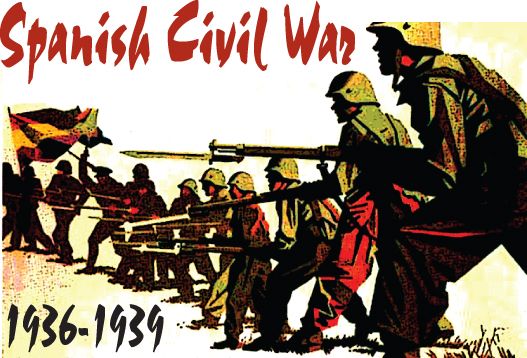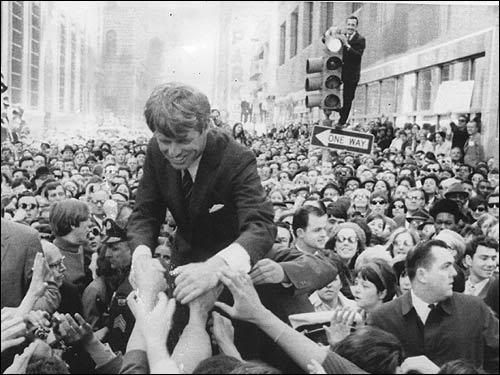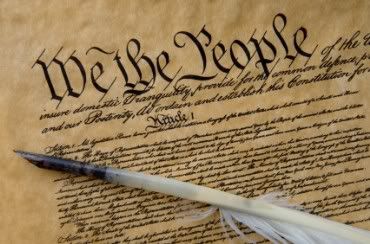This, the sixty-eighth anniversary of the date which will live in infamy, is rarely circled in calendars or noted in any wholesale fashion as it once was. Humans are finite beings with finite memories and as one generation marches to the grave, so too generations ahead of it do not and cannot keep alive the same memory in the same way. We respect those who have borne the battle and for their widow and their orphan, as Lincoln put it, but struggle though we might, no matter how frequently we invoke the phrase “never again” as a means of supreme deterrent, “again” always manages to arrive once more. Those who have taught history know the frustration of attempting to grab the attention of students whose impression of that which came before them often has the unfortunate caveat of a yawn attached. It has been my own personal experience that making parallel examples to the current day is the best means of making the subject both real and current, so upon that framework I state my case.
Much of the sting of that tragic day has subsided, as those who fought and died in World War II have become increasingly fewer with the progression of time. Indeed, the very mention of “Pearl Harbor” no longer carries with it the gut-punch sting and the tragedy that it did to those who lived in those times. Provided subsequent terrorist attacks on American soil are foiled, the phrase “September 11” will in another generation or so begin to lose its collective horror. Much to the frustration of those that would teach the lessons of the past and those that would wish to be remembered beyond the immediate for reasons either noble, selfish, or some combination thereof it would be unnatural to expect otherwise. Some of us wish to forget and some of us wish that those who would exploit tragedies for their own gain would disappear from the face of the earth, never to return.
One hastens a bit to make the 11 September/Pearl Harbor comparison (aside from not wishing to embrace neo-con artist sales jobs) because in many ways they were very different, but in some ways they were not. Pearl Harbor was the slow culmination of clandestine and backstage interference with Japanese affairs and war goals. There was, believe it or not, once a time where this country produced a significant amount of crude oil for export, particularly a vast majority of the aviation gasoline and raw materials that then-President Roosevelt denied to the Empire of Japan as a punitive measure. What is often not mentioned is that due to Japan’s invasion of Manchuria and Mainland China, the United States embargoed essential goods necessary for the island nation’s continued military success. This fact has led to many to believe in a conspiracy theory, asserting that Pearl Harbor had been sniffed out weeks, if not months before, and was allowed to transpire as exactly planned to draw the U.S. into its second World War. I personally don’t ascribe to this view, instead believing that any nation can be easily lulled into a false sense of security, particularly when it has been blessed with the ability to have two oceans separating it from foreign invasion and no immediate enemies within easy striking distance.
What I do find compelling is that, according to one poll, we have been recently returning to our isolationist roots, increasingly reluctant to engage in foreign policy conflicts or exercises in imperialism. In the aftermath of Pearl Harbor, many a story is told of men who when informed of the attack went directly to the nearest recruiting station and volunteered immediately for service. Likewise, there were many patriots eager to pick up a gun and vanquish the terrorist threat eight years ago. Now, however, a majority of Americans are skeptical of continued involvement in Afghanistan and still uncertain of where we intend to end up by the end of our latest expanded containment exercise. It was Pearl Harbor which set into play the strength and scope of our hand in world leadership. In plainest irony, however, by the end of the war, it placed into motion the Post-War boom that, we know now was but an ephemeral, gauzy dream that obscured larger realities and subsequent challenges yet to arrive.
A recent pro-Obama column in Newsweek written by Fareed Zakaria notes how the cowboy diplomacy and shoot-from-the-hip impulsiveness of the previous President has been replaced with a thoughtful wartime strategy.
This first year of his presidency has been a window into Barack Obama’s world view. Most presidents, once they get hold of the bully pulpit, cannot resist the temptation to become Winston Churchill. They gravitate to grand rhetoric about freedom and tyranny, and embrace the moral drama of their role as leaders of the free world. Even the elder Bush, a pragmatist if there ever was one, lapsed into dreamy language about “a new world order” once he stood in front of the United Nations. Not Obama. He has been cool and calculating, whether dealing with Russia, Iran, Iraq, or Afghanistan. A great orator, he has, in this arena, kept his eloquence in check. Obama is a realist, by temperament, learning, and instinct. More than any president since Richard Nixon, he has focused on defining American interests carefully, providing the resources to achieve them, and keeping his eyes on the prize.
Franklin Roosevelt’s speech given the day after the ignominy of Pearl Harbor shows this same sort of cautious realism and resistance to forcibly implant sweeping drama deep into the historical record, where it presumably would never be overlooked in the future.
The wording of Roosevelt’s speech was intended to have a strong emotional impact, appealing to the anger felt by Americans at the nature of the Japanese attack…He deliberately avoided the Churchillian approach of an appeal to history. Indeed, the most famous line of the speech originally read “a date which will live in world history”; Roosevelt crossed out “world history” and replaced it with “infamy”, as seen in the annotated copy of the original typewritten speech from the National Archives.
In this address before a joint session of Congress which served as America’s formal entrance into World War II, Roosevelt sought a nuanced approach, careful not to seem too Wilsonian, a President whose attitude towards the first World War and American objectives was based around sweeping idealism and open-ended commitment.
Roosevelt consciously sought to avoid making the sort of more abstract appeal that had been issued by President Woodrow Wilson in his own speech to Congress[8] in April 1917, when the United States entered World War I. Wilson had laid out the strategic threat posed by Germany and stressed the idealistic goals behind America’s participation in the war. During the 1930s, however, American public opinion had turned strongly against such themes and was wary of-if not actively hostile to-idealistic visions of remaking the world through a “just war”. Roosevelt therefore chose to make an appeal aimed much more at the gut level-in effect, an appeal to patriotism rather than to idealism.
Returning to Zakaria’s synopsis,
Obama’s realism is sure to be caricatured as bloodless and indifferent to human rights, democracy, and other virtues. In fact, Obama probably understands the immense moral value of an engaged and effective superpower. As he said in his speech, “More than any other nation, the United States of America has underwritten global security for over six decades-a time that, for all its problems, has seen walls come down, markets open, billions lifted from poverty, unparalleled scientific progress, and advancing frontiers of human liberty.”
It is this approach that may be exactly what is needed to carry us forward. Granted, this is not a strategy that lends itself easily to thundering applause and edge-of-your-seat thrills, but changing times require changing tactics. With the end of World War II may have come the end of the nation/state war whereby one can easily identify the enemy by observing the flag it flies and by taking care to note the well-established boundaries, firmly drawn that separate it from others. Whomever chose to denote terrorist groups as “cells” provided a very helpful metaphor to explain our current threat. As cancer spreads from one part of the body to others as it metastasizes, so does our Al-Qaeda or The Taliban. Members of terrorists groups are linked together by a belief in radical Islam, not by allegiance to country. One cannot emphasize this fact enough because we are collectively having a very difficult time wrapping our brains around the true New World Order, a task which is further garbled by years of war movies and oversimplified fictionalized struggles between combatants who always manage to be either purely good or purely evil.
Zakaria again asserts,
As for the broader problem of great-power support, the Taliban and Al Qaeda are largely isolated, with a massive international coalition arrayed against them. That does not mean that they cannot prevail in a local struggle over some parts of Afghanistan, but they will be hard pressed to achieve their ultimate goal of ruling Afghanistan. It might be difficult for the United States to “win” in Afghanistan, but it will be impossible for the Taliban to do so. And finally, America has not abandoned Iraq and will not abandon Afghanistan.
Resounding victory ending up in panicked retreat by our opponents is something we should cease to expect in our current conflict. There will be no moment of triumph, no statue toppled in the city square, no flag hoisted over the land of the defeated enemy, no Mission Accomplished banner forming the backdrop of a photo-op disguised as a victory speech. Nor will there be any V-E Day or V-J Day upon which to ring the church bells and observe the medals pinned to the chests of those who served, suffered, and sacrificed. The only thing the least bit instantly emotional, powerful, and potent about war with extremist groups are in the massive attacks successfully launched by unseen cells which distressingly manage somehow to slide through the cracks. The actual street-by-street, cave-by-cave, and village-by-village tactics employed by our forces and those of our allies are not especially grandiose nor easily included into the record of noble deeds accomplished by massive invasion with years of hype and build up to the act itself.
Pausing once more to reference Zakaria,
The history of great powers suggests that maintaining their position requires, most crucially, tending to the sources of their power: economic growth and technological innovation. It also means concentrating on the centers of global power, not the periphery…It’s important to remember that in the coming century it will be America’s dominant position in Asia-its role as the balancer in the Pacific-that will be pivotal to its role as a global superpower, not whatever happens in the mountains of Afghanistan.
Futurists and those who follow existing trends denote the Age of Terrorism as having a relatively short lifespan. Thirty to forty years maximum is the number floated by any number of reputable scholars who make their living by of making educated guesses regarding events yet before us. This is, of course, not to denigrate or refuse to grant 11 September 2001 its rightful place in the American house of horrors, but to say instead that inevitably and eventually some other national crisis will be superimposed on top of it and as it does, generational memory will grow shorter and shorter. With the rise of Asia, particularly China, will come new challenges to the world and with them a new economic coalition with greatly conflicting interests. That will be a struggle requiring the leadership dexterity of a seal balancing a ball on top of its nose. As the Bible says,
And ye shall hear of wars and rumours of wars: see that ye be not troubled: for all these things must come to pass, but the end is not yet.










